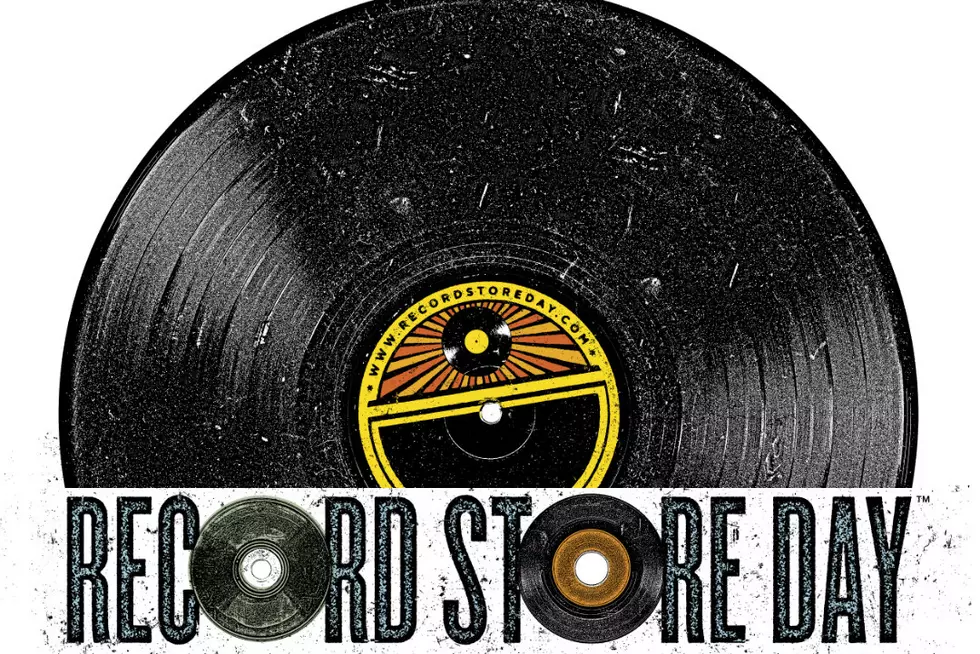
20 Year Ago: The Wallflowers Release Their Breakthrough ‘Bringing Down the Horse’
Believe it or not, being Bob Dylan's son only gets you so far in the music business. Jakob Dylan’s band, the Wallflowers, endured the same uphill battle as most other bands on their way to bona fide rock stardom.
Dylan formed the band in 1989 with his childhood friend, guitarist Tobi Miller, in Los Angeles. After Dylan spent a few years attending art school in New York City, he returned to the West Coast and the pair brought on drummer Peter Yanowitz and keyboardist Rami Jaffee.
They became fixtures at clubs on the Sunset Strip until their manager put their demo in the right hands at Virgin. They released their self-titled debut on the label in August 1992, but they would be hanging together by a thread within a year. The album went nowhere and their champions at Virgin moved to greener pastures, prompting the Wallflowers to request an early release from their contract. And that's when members started steadily dropping out until the last men standing were Dylan and Jaffee. Although things looked undoubtedly iffy, they managed to secure another chance at a major label with Interscope.
At the time, the Wallflowers didn’t even have replacements for Miller or Yanowitz when they recorded Bringing Down the Horse, so Dylan enlisted erstwhile Pearl Jam drummer Matt Chamberlain and a succession of hotshot guitarists – most notably Tom Petty’s right-hand man, Mike Campbell. Fortunately, the band landed a sympathetic producer in T-Bone Burnett, who recognized a timeless quality in the Wallflowers’ sound and he found a way to shine a spotlight on it for the mainstream.
Of course, Dylan’s songwriting and voice always inherently had one foot in his father’s world. Subtly echoing the familiarity of ‘60s and ’70s classic rock, his vocals still had enough modernity to appeal to the mid-'90s rock audience. Meanwhile, Jaffee’s rich organ lines offered another link back to the days of the elder Dylan’s Highway 61 Revisited and Blonde on Blonde.
The Wallflowers released Bringing Down the Horse on May 21, 1996, then immediately embarked on tour in support of it. The album didn't pick up steam until the lead single was released in August, and only then did Dylan come to realize how important one of Mike Campbell's slide guitar hooks turned out to be.
Once "Sixth Avenue Heartache" found a home on almost every radio format and the David Fincher-directed video went into constant rotation on MTV, the Wallflowers really began to pick up momentum. They played SNL in November, the album was certified gold by December and "Sixth Avenue Heartache" was up for two Grammy nominations in February.
They released the anthemic second single, "One Headlight," which not only became their biggest hit to date, but one of the most ubiquitous rock tracks of the era. The Wallflowers won two Grammys for the song in 1998. Later singles included the moody and mysterious “Three Marlenas” and the churning “The Difference."
By the time the dust cleared, the album was certified triple platinum and the Wallflowers were celebrities beyond Dylan's famous last name. With his smoky gaze, rangy presence and fashion-model cheekbones, Dylan turned into a sex symbol, and he seemed about as comfortable with it as his father might have. But the looks didn’t hurt when it came to building the Wallflowers' fan base, which likely had a slightly higher percentage of females than those of their peers.
But the success of Bringing Down the Horse turned out to be an anomaly. While the Wallflowers never completely slipped from view (except for the hiatus they took between 2006 and 2012), they also never came anywhere near the same commercial heights.
Since then, Dylan has remained the only consistent member of the Wallflowers and released four more albums. But Bringing Down the Horse made an impact far beyond Dylan's career. Their blend of rootsy folk and '90s radio rock undoubtedly played a role in the influence of acoustic-based millennial acts like Dashboard Confessional.
Does Jakob Dylan have songwriting chops equal to those of his dad? Of course not. But neither does anyone else. But through the sophisticated lyrics and pop songcraft of Bringing Down the Horse, the younger Dylan stood firmly atop the rock world on his own – even if only for a minute.
20 Albums You Won't Believe Turn 20 in 2016
More From Diffuser.fm









